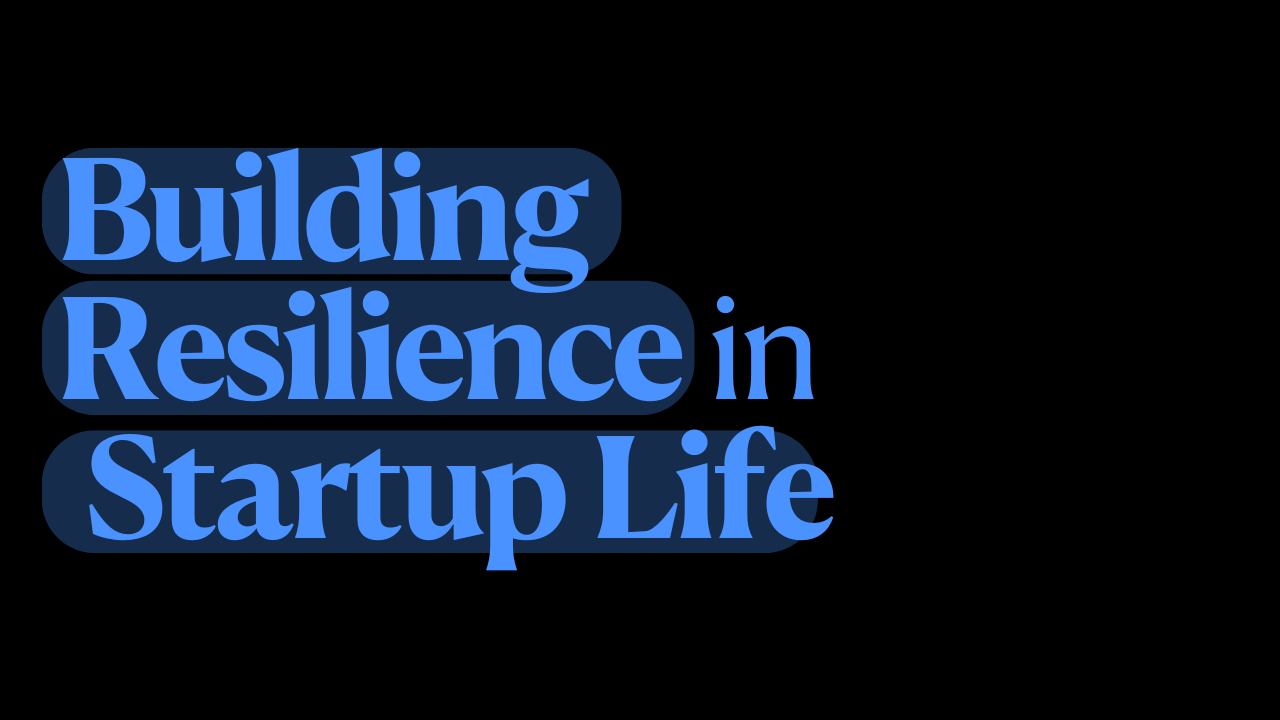Building Resilience in Startup Life
Startups are emotional pressure cookers,
And founders often carry the full weight, silently.
You’re navigating team dynamics, investor expectations, product pivots, and your own doubts,
All while trying to keep everyone calm, motivated, and moving.
It’s no wonder founders crack.
And it’s not a character flaw. It’s a system failure.
Because here’s the truth, resilience isn’t personality.
It’s infrastructure.
If you don’t have a way to stay steady, you will burn out.
But if you do, resilience becomes your edge.
Your calm in chaos. Your bounce-back muscle.
Here’s what that looks like in practice:
1. Feel the emotion, but don’t lead from it
You don’t need to fake stoicism,
Resilient founders feel things, frustration, fear, grief, all of it.
But they don’t act from that place.
They pause. They name the feeling.
Then they choose their next move with intention, not impulse.
You can say, “This shook me,”
And still show up with clarity for your team.
Emotional honesty is power,
Emotional reactivity is risk.
2. Build recovery into the rhythm
You don’t earn rest,
You schedule it.
Founders who last don’t wait until burnout to take a break,
They’ve built small resets into their day, their week, their month.
That might be a walk every afternoon,
One screen-free night a week,
A weekend away every quarter.
Recovery isn’t indulgence,
It’s preparation.
You can’t lead well from depletion.
3. Separate the signal from the noise
Every day, you’re bombarded with inputs,
Metrics, investor emails, team Slack messages, market chatter, inner doubt.
Resilient founders know how to filter.
They don’t respond to everything.
They tune into what matters, their team, their customers, their own internal compass, and let the rest fade out.
Because if you try to listen to it all,
You drown.
Clarity comes from curation.
4. Name hard truths before they calcify
One of the biggest killers of resilience? Avoidance.
You know something’s off, a co-founder dynamic, a broken strategy, a sliding standard,
But you wait, hoping it will fix itself.
It won’t.
Resilient founders name the truth early,
They say the uncomfortable thing clearly and directly,
And in doing so, they create safety and alignment.
Honesty isn’t chaos,
It’s leadership.
5. Don’t go it alone
The strongest founders I coach all have one thing in common,
They’re supported.
Not because they’re weak,
But because they’re smart enough to know that going it alone isn’t brave. It’s reckless.
They’ve built support systems,
A coach, a therapist, a peer group, a friend they can call at midnight without pretending everything’s okay.
Because staying resilient doesn’t mean holding it all,
It means knowing when and where to share the weight.
Resilience isn’t about white-knuckling your way through,
It’s not about being stoic or superhuman.
It’s about recovery, reflection, and learning to stay clear-headed in chaos.
If you’re feeling tired, reactive, or stuck in “just survive” mode,
You’re not broken, you’re maxed out.
Let’s build your bounce-back plan.



.avif)
